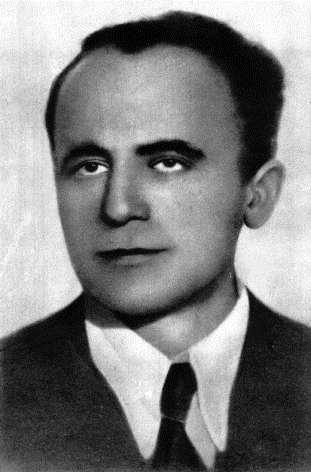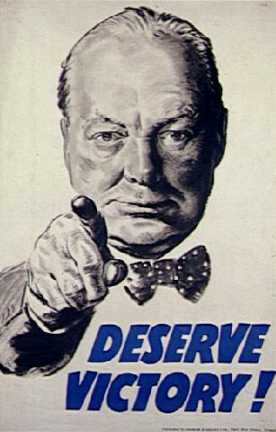
December 26

1492 Christopher Columbus establishes Spain's first colony in the Americas on Hispaniola, in what is now Haiti. (Bradley)
1530 Death: Zahir al-Din Mohammed Babur Shah, founder Mogols dynasty, at 47.
1624 Death: Simon Marius, astronomer, in Bavaria at 54.

1659 The Long Parliament reforms in Westminster.




1748 France and Austria sign a treaty resolving their dispute over the Southern Netherlands.
1770 Birth: Pierre earl de Cambronne, French general; Waterloo, Elba.
1771 Death: Claude A. Helvétius, French encyclopaedist; L'esprit.
1773 US Revolutionary War: Tea ships are expelled from Philadelphia.
1776 US Revolutionary War: American forces under General Washington, having crossed the Delaware River on Christmas night, defeat a Hessian force fighting for the British at the battle of Trenton, New Jersey. This is a major British defeat.

1792 Birth: Charles Babbage, English inventor; calculating machine, difference engine, first speedometer.

1805 France and Austria sign the Peace of Pressburg.
1837 Death: Martinus van Marum, chemist, physicist.
1837 Birth: George Dewey, Admiral of the US Navy, Spanish-American War, hero of Manila. Quote: âYou may fire when you are ready, Gridley.â
1854 Wood-pulp paper is first exhibited, in Buffalo.
1860 War of Northern Aggression: Major Robert Anderson, under cover of darkness, concentrates his small force at Fort Sumter.
1861 Birth: Friedrich Engel, German mathematician (group theory).
1862 Birth: Alexander V. Amfiteatrov, Russian/French/Italian writer.
1862 US Civil War: 38 Santee Sioux Indians are hanged in Mankato, Minnesota, due to their uprising.
1862 US Civil War: The Battle of Dumfries, Virginia.
1865 James H. Mason of Franklin, Massachusetts patents the coffee percolator.
1877 The Socialist Labor Party of North America holds its first national convention.
1878 Birth: Isaiah Bowman, US geographer, cofounder of the Geographical Review.
1883 Birth: Frank Debenham, Australian geographer, geologist.
1886 Birth: Gyula GÃmbÃs von Jákfa, general, dictator of Hungary (1932-35).
1887 Birth: Charles Brandon Booth, American social reformer and head of the Volunteers of America 1949-1958. Booth is the grandson of Salvation Army founder William Booth.
1890 Death: Heinrich Schliemann, German archaeologist and excavator of Troy, at 86.
1890 King Mwanga of Uganda signs a contract with the East Africa Company.

1893 Birth: Mao Tse-Tung (Zedong), communist-revolutionist, founding father of the Peopleâs Republic of China, Prime Minister of People's Republic of China (1949-76).
1897 Birth: Willie Corsari, Dutch writer.
1899 Boer War: At Mafeking, Bathe-Powells fail in their assault on Fort Game Tree. 24 are killed.
1914 WW1: Jean Monnet obtains a lucrative monopoly contract for the shipment of vital war materials from Canada to France, making a fortune as a war profiteer.
1916 WW1: Joseph Joffre becomes marshal of France.
1917 Birth: Rosemary Woods, Nixon's secretary.
1917 WW1: The US government takes over operation of the nation's railroads.
1925 Turkey adopts the Gregorian calendar.
1930 Weimar: Dr. Hjalmar Schacht meets Hermann Goering at a dinner party, takes a liking to him, and agrees to meet with Hitler in January. (Children)
1931 Weimar: SS-Sturmbannführer Reinhard Heydrich weds Lina von Osten.

1932 Birth: Jesus T. Peralta, in Fort William, McKinley (now Camp Bonifacio), Rizal province; Ph.D. from the University of Santo Tomas (Manila), painter, photographer, graphic artist, poet and essayist.
1933 Death: Lunatscharski, writer.
1933 Holocaust: The Kantarschi Synagogue in Jassy is burned down by the Romanian Iron Guard.


1934 Volkishness: Hitler in a conversation with Hermann Rauschning asks: "How can we arrest racial decay? Shall we form a select company of the really initiated? An Order, the brotherhood of Templars around the holy grail of pure blood?" (Rauschning)

1936 The Israel Philharmonic Orchestra is founded.
1938 The SS Training Office orders a specially revised and expanded, one-volume edition of Michael Prawdin's two books on Genghis Khan (See 1934, 1935). This book is frequently given as a Christmas present by Himmler and every SS leader receives a copy. Hitler is said to have derived his ideas concerning Blutkitt (blood cement) from this source. (Architect)
1939 WW2: Hitler tells a private meeting of his Gauleiter: "The Jews may deceive the world... but they cannot deceive me. I know that they are guilty of starting this war -- they alone and nobody else." (Waite)

1941




1943 Resistance: Earl Claus von Stauffenberg takes a bomb to Hitlers headquarters, but fails to set it off.

1944 WW2: Budapest is surrounded by the Soviet army.
1944 Diary of Leon Gladun: A black day in the history of our division. At 12:00 during dinner time several shells fell near PD of 6-th Battery. The first one killed was Lance Sergeant Gorecki while Corporal Dyrod and Corporal Szecura were wounded.
1944 WW2: Budapest is almost completely encircled by General Tolbukhin's Third Ukraine Front.
1945 Birth: John Walsh, anticrime activist; America's Most Wanted.
1945 The US Treasury Department accuses Allen Dulles of laundering money from the Nazi Bank of Hungary into Switzerland. The charges are later dropped by the US State Department.

1968 Arab terrorists in Athens fire on an El Al plane, killing 1 person.



1978 India's former Prime Minister, Indira Gandhi, is released from jail.

1986 Hijackers take over an Iraqi Airways Boeing 737 with 91 people on board during a flight from Baghdad to Amman. It lands in Arar, Saudi Arabia where it explodes, killing 62 people. (Bradley)
1988 An Anti African student rebellion is staged in the People's Republic of China.
1989 Romania's National Salvation Front names a new government headed by President Ion Iliescu, a day after announcing the execution of deposed dictator Nicolae Ceausescu. (Bradley)
1990 Romania expels ex-King Michael only hours after he had returned from exile after 43 years.
1993 Four gunmen vanish into the mountainous wilds of southern Russia with a $10 million ransom after a four-day hostage drama aboard a commandeered helicopter.
1993 Members of China's Communist Party gather in Beijing to mark the 100th anniversary of the birth of Mao Tse-tung.
1994 French antiterrorist police storm a hijacked jet at Marseille, killing all four Islamic fundamentalist hostage-takers and saving the lives of some 170 passengers and crew.
1997 Death: John Hinde, photographer, circus promoter, at 81.
2000 The White House kills a drug-import plan, saying the congressional measure for low-cost prescription drugs will neither be safe nor cut costs.
2001 India and Pakistan move guided missiles to the border, in the biggest military buildup in the region in over 20 years.

2001 Afghan PM Hamid Karzai believes the Taliban are defeated, saying "Some may still be here, but I don't think they are in large numbers. I think that terrorism is largely defeated in Afghanistan."


2001

2002

2003

2004

2004

2004

2004

2004

2004

2004

2004

Visit:




 Visit:
Visit:

Click Here to email the History: One Day At a Time webmaster.